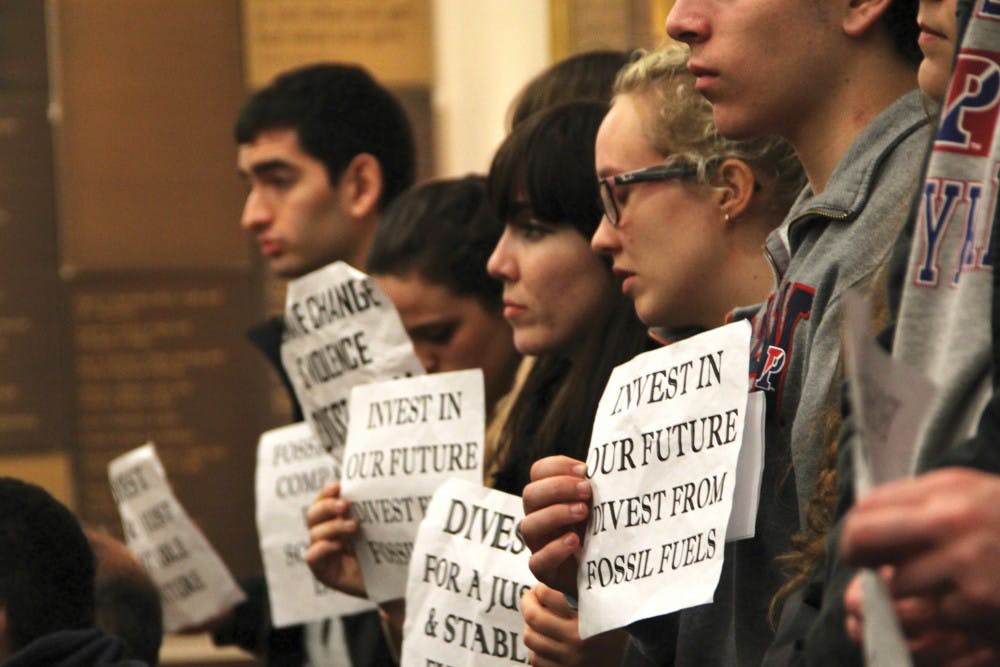
Following the election of Trump, Fossil Free Penn will pursue their mission with more urgency.
Credit: Carson KahoeWith 1968 Wharton graduate Donald Trump’s presidency on the horizon, Fossil Free Penn sees their mission as more urgent than ever.
Organizations like Fossil Free Penn view their role in Trump’s America as a part of broader private sector and grassroots efforts to combat climate change without the support of the federal government.
The Trump administration has not stated any plans to reverse climate change. Trump has vowed to cancel last year’s Paris climate agreement and dismantle President Barack Obama’s domestic climate change regulations during his time in office.
“We think it is especially important right now that we continue this campaign,” said College senior Peter Thacher, the alumni coordinator for Fossil Free Penn. “Because if the government is going to be unwilling to take action on climate, grassroots organizing and the actions of institutions like Penn become even more important.”
Group members said moving money out of the fossil fuel industry and into renewable energy at a private sector level will be crucial to progress given that a Trump administration is unlikely to facilitate that transition. Fossil Free Penn hopes institutional shifts in funding, like the divestment from fossil fuels that they have long advocated for at Penn, will be the new impetus to limit the impact of climate change.
The Policy Coordinator for Fossil Free Penn and Engineering and Wharton senior Thomas Lee said the burden of ensuring clean energy use in developing countries has now shifted to the private sector too.
“When there is reduced federal funding for the U.N.’s Green Climate Fund and for renewable energy, private investors need to step up for cleaner energy deployment in developing countries — not just in the U.S,” Lee said.
Since the presidential election, many members of Fossil Free Penn have attended solidarity marches like the demonstration organized by Students Organizing for Unity and Liberation after racist GroupMe messages were sent to black freshmen. They feel that causes like this are relevant to their mission as an environmental group.
“We see these issues as connected,” Thacher said. “Climate change affects people who are low-income and people of color the most, so we really try to engage in other justice issues in addition to divestment as individuals, even if that’s not quite what the campaign focuses on on a day to day basis.”
Though Fossil Free Penn does identify as a political movement, it does not have immediate plans to collaborate with political campaigns.
“We treat that in the same way that we try to engage in other justice fights on campus,” Thacher said. “We would be interested in engaging with local politics as much as we could but we do have a limited capacity of people.”
Earlier this month, the group staged a sit-in to protest the University’s decision in September to not divest from fossil fuels. Fossil Free Penn members were granted a meeting with Penn President Amy Gutmann and Chairman of the Board of Trustees, David Cohen, following the protest, and the group is currently focusing on preparation for that meeting.
“We are not finished with this campaign despite the rejection that occurred this past September,” Thacher said. “We look forward to working with the administration and figuring out what we can do together to have Penn divest from fossil fuels.”
The Daily Pennsylvanian is an independent, student-run newspaper. Please consider making a donation to support the coverage that shapes the University. Your generosity ensures a future of strong journalism at Penn.
Donate



